1. Cytogenetic abnormalities in adult acute lymphoblastic leukemia: correlations with hematologic findings outcome. A Collaborative Study of the Group Français de Cytogénétique Hématologique. Blood. 1996; 87:3135–3142. PMID:
8605327.
2. Aricò M, Schrappe M, Hunger SP, et al. Clinical outcome of children with newly diagnosed Philadelphia chromosome-positive acute lymphoblastic leukemia treated between 1995 and 2005. J Clin Oncol. 2010; 28:4755–4761. PMID:
20876426.

3. Ottmann OG, Pfeifer H. Management of Philadelphia chromosome-positive acute lymphoblastic leukemia (Ph+ ALL). Hematology Am Soc Hematol Educ Program. 2009; 371–381. PMID:
20008223.

4. Ravandi F, Kebriaei P. Philadelphia chromosome-positive acute lymphoblastic leukemia. Hematol Oncol Clin North Am. 2009; 23:1043–1063. PMID:
19825452.

5. Schrappe M, Nachman J, Hunger S, et al. Educational symposium on long-term results of large prospective clinical trials for childhood acute lymphoblastic leukemia (1985-2000). Leukemia. 2010; 24:253–254. PMID:
20145664.

6. Fagioli F, Zecca M, Rognoni C, et al. Allogeneic hematopoietic stem cell transplantation for Philadelphia-positive acute lymphoblastic leukemia in children and adolescents: a retrospective multicenter study of the Italian Association of Pediatric Hematology and Oncology (AIEOP). Biol Blood Marrow Transplant. 2012; 18:852–860. PMID:
22019726.

7. Roy A, Bradburn M, Moorman AV, et al. Early response to induction is predictive of survival in childhood Philadelphia chromosome positive acute lymphoblastic leukaemia: results of the Medical Research Council ALL 97 trial. Br J Haematol. 2005; 129:35–44. PMID:
15801953.

8. Schrappe M, Aricò M, Harbott J, et al. Philadelphia chromosome-positive (Ph+) childhood acute lymphoblastic leukemia: good initial steroid response allows early prediction of a favorable treatment outcome. Blood. 1998; 92:2730–2741. PMID:
9763557.
9. Mori T, Manabe A, Tsuchida M, et al. Allogeneic bone marrow transplantation in first remission rescues children with Philadelphia chromosome-positive acute lymphoblastic leukemia: Tokyo Children's Cancer Study Group (TCCSG) studies L89-12 and L92-13. Med Pediatr Oncol. 2001; 37:426–431. PMID:
11745870.

10. Laport GG, Alvarnas JC, Palmer JM, et al. Long-term remission of Philadelphia chromosome-positive acute lymphoblastic leukemia after allogeneic hematopoietic cell transplantation from matched sibling donors: a 20-year experience with the fractionated total body irradiation-etoposide regimen. Blood. 2008; 112:903–909. PMID:
18519812.

11. Wei G, Rafiyath S, Liu D. First-line treatment for chronic myeloid leukemia: dasatinib, nilotinib, or imatinib. J Hematol Oncol. 2010; 3:47. PMID:
21108851.

12. de Labarthe A, Rousselot P, Huguet-Rigal F, et al. Imatinib combined with induction or consolidation chemotherapy in patients with de novo Philadelphia chromosome-positive acute lymphoblastic leukemia: results of the GRAAPH-2003 study. Blood. 2007; 109:1408–1413. PMID:
17062730.

13. Lee S, Kim YJ, Min CK, et al. The effect of first-line imatinib interim therapy on the outcome of allogeneic stem cell transplantation in adults with newly diagnosed Philadelphia chromosome-positive acute lymphoblastic leukemia. Blood. 2005; 105:3449–3457. PMID:
15657178.

14. Yanada M, Takeuchi J, Sugiura I, et al. High complete remission rate and promising outcome by combination of imatinib and chemotherapy for newly diagnosed BCR-ABL-positive acute lymphoblastic leukemia: a phase II study by the Japan Adult Leukemia Study Group. J Clin Oncol. 2006; 24:460–466. PMID:
16344315.

15. Druker BJ, Sawyers CL, Kantarjian H, et al. Activity of a specific inhibitor of the BCR-ABL tyrosine kinase in the blast crisis of chronic myeloid leukemia and acute lymphoblastic leukemia with the Philadelphia chromosome. N Engl J Med. 2001; 344:1038–1042. PMID:
11287973.

16. Hoelzer D, Gökbuget N, Ottmann OG. Targeted therapies in the treatment of Philadelphia chromosome-positive acute lymphoblastic leukemia. Semin Hematol. 2002; 39(4 Supple 3):32–37. PMID:
12447850.

17. Ottmann OG, Druker BJ, Sawyers CL, et al. A phase 2 study of imatinib in patients with relapsed or refractory Philadelphia chromosome-positive acute lymphoid leukemias. Blood. 2002; 100:1965–1971. PMID:
12200353.

18. Chen H, Liu KY, Xu LP, et al. Administration of imatinib after allogeneic hematopoietic stem cell transplantation may improve disease-free survival for patients with Philadelphia chromosome-positive acute lymphobla stic leukemia. J Hematol Oncol. 2012; 5:29. PMID:
22682059.

19. Aricò M, Valsecchi MG, Camitta B, et al. Outcome of treatment in children with Philadelphia chromosome-positive acute lymphoblastic leukemia. N Engl J Med. 2000; 342:998–1006. PMID:
10749961.

20. Sharathkumar A, Saunders EF, Dror Y, et al. Allogeneic bone marrow transplantation vs chemotherapy for children with Philadelphia chromosome-positive acute lymphoblastic leukemia. Bone Marrow Transplant. 2004; 33:39–45. PMID:
14566329.

21. Doki N, Ohashi K, Oshikawa G, Kobayashi T, Kakihana K, Sakamaki H. Clinical outcome of hematopoietic stem cell transplantation for Philadelphia chromosome-positive acute lymphoblastic leukemia (Ph + ALL): experience from a single institution. Pathol Oncol Res. 2014; 20:61–66. PMID:
23821455.

22. Salami K, Alkayed K, Halalsheh H, Hussein AA, Riziq M, Madanat F. Hematopoietic stem cell transplant versus chemotherapy plus tyrosine kinase inhibitor in the treatment of pediatric Philadelphia chromosome-positive acute lymphoblastic leukemia (ALL). Hematol Oncol Stem Cell Ther. 2013; 6:34–41. PMID:
23664604.

23. Rives S, Estella J, Gómez P, et al. Intermediate dose of imatinib in combination with chemotherapy followed by allogeneic stem cell transplantation improves early outcome in paediatric Philadelphia chromosome-positive acute lymphoblastic leukaemia (ALL): results of the Spanish Cooperative Group SHOP studies ALL-94, ALL-99 and ALL-2005. Br J Haematol. 2011; 154:600–611. PMID:
21707583.
24. Manabe A, Kawasaki H, Shimada H, et al. Imatinib use immediately before stem cell transplantation in children with Philadelphia chromosome-positive acute lymphoblastic leukemia: Results from Japanese Pediatric Leukemia/Lymphoma Study Group (JPLSG) Study Ph(+) ALL04. Cancer Med. 2015; 4:682–689. PMID:
25641907.
25. Nishiwaki S, Miyamura K, Kato C, et al. Impact of post-transplant imatinib administration on Philadelphia chromosome-positive acute lymphoblastic leukaemia. Anticancer Res. 2010; 30:2415–2418. PMID:
20651401.
26. Schultz KR, Bowman WP, Aledo A, et al. Improved early event-free survival with imatinib in Philadelphia chromosome-positive acute lymphoblastic leukemia: a children's oncology group study. J Clin Oncol. 2009; 27:5175–5181. PMID:
19805687.
27. Satwani P, Sather H, Ozkaynak F, et al. Allogeneic bone marrow transplantation in first remission for children with ultra-high-risk features of acute lymphoblastic leukemia: A children's oncology group study report. Biol Blood Marrow Transplant. 2007; 13:218–227. PMID:
17241927.

28. Schultz KR, Carroll A, Heerema NA, et al. Long-term follow-up of imatinib in pediatric Philadelphia chromosome-positive acute lymphoblastic leukemia: Children's Oncology Group study AALL0031. Leukemia. 2014; 28:1467–1471. PMID:
24441288.

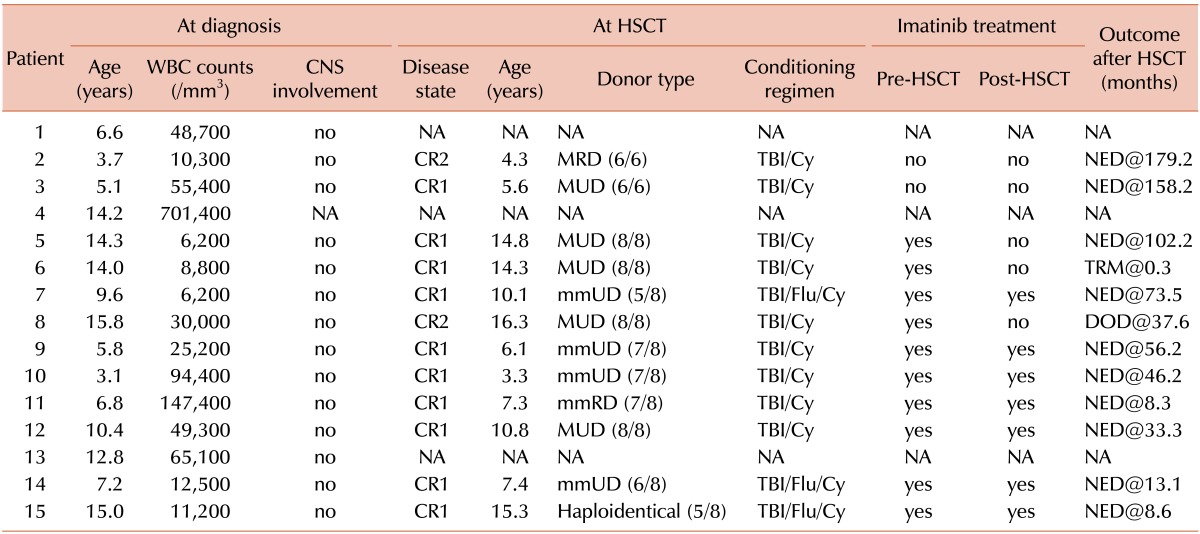




 PDF
PDF ePub
ePub Citation
Citation Print
Print


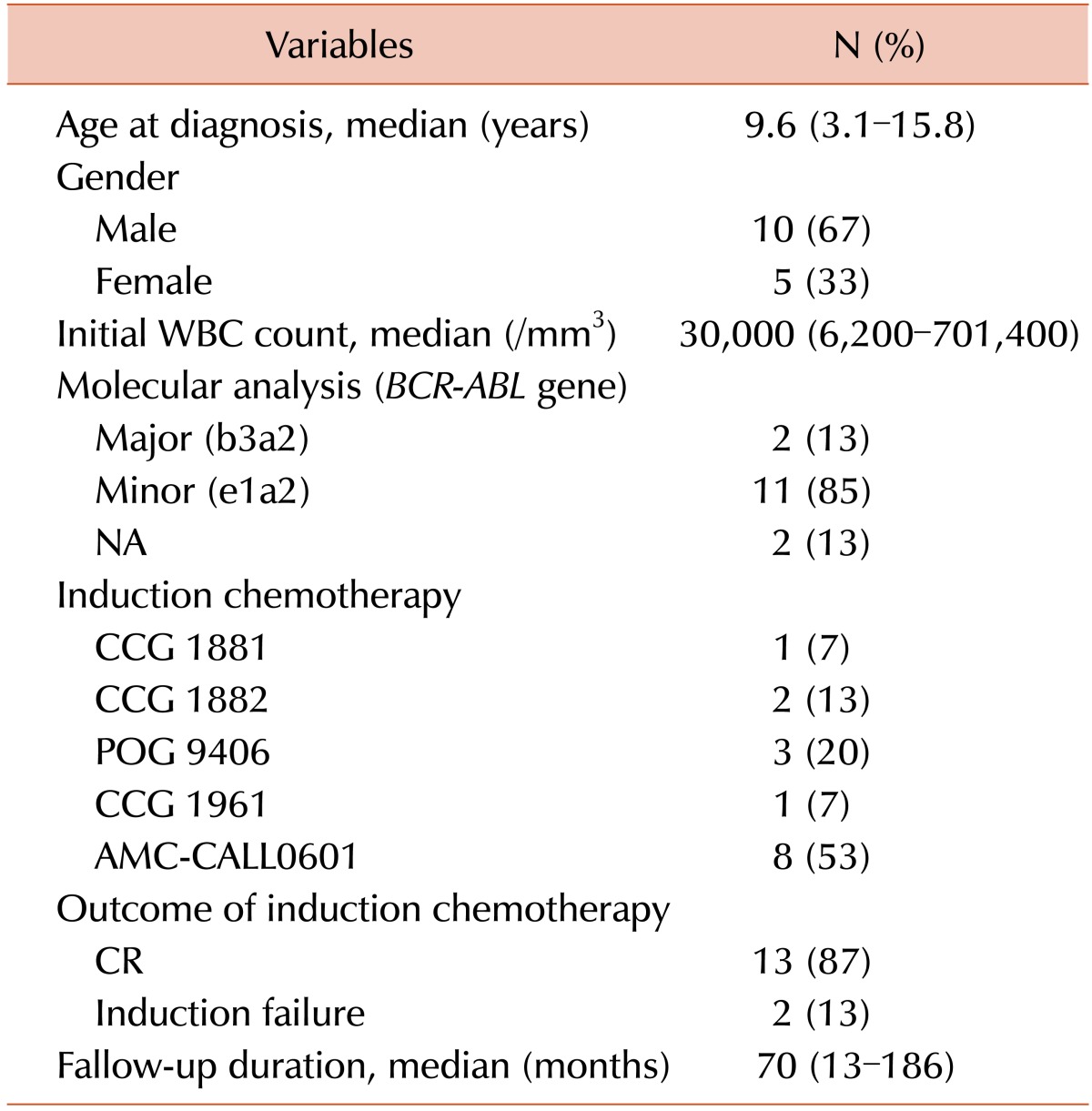
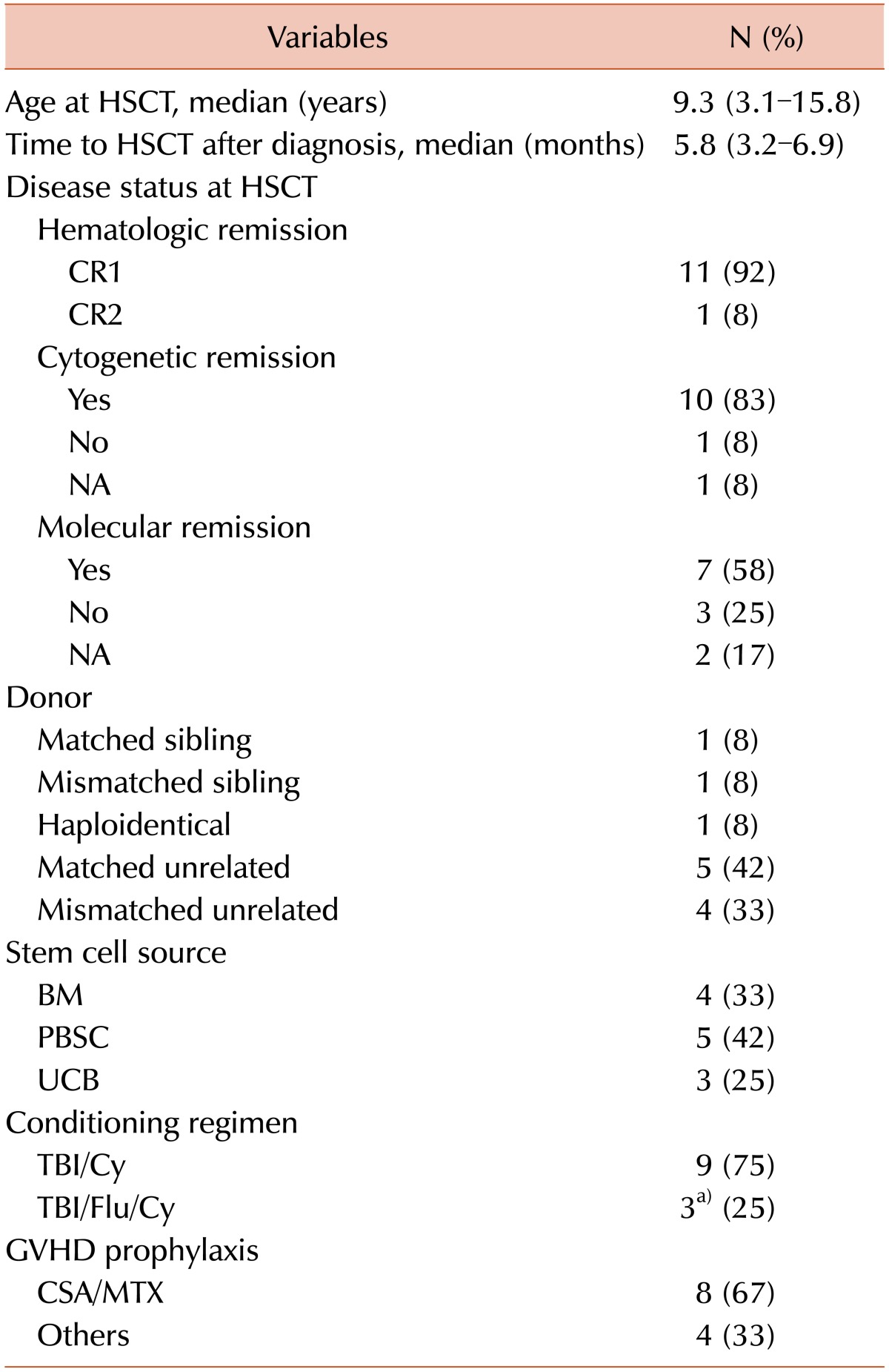
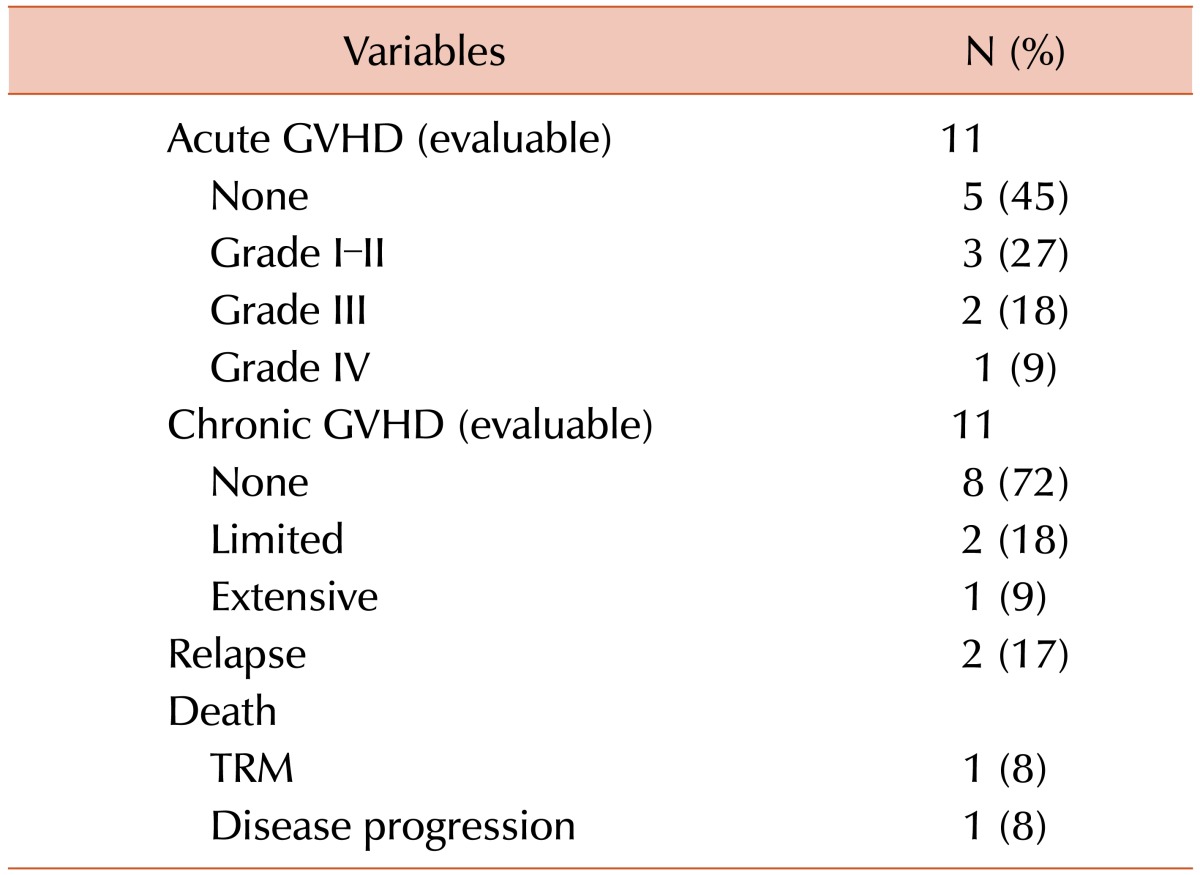
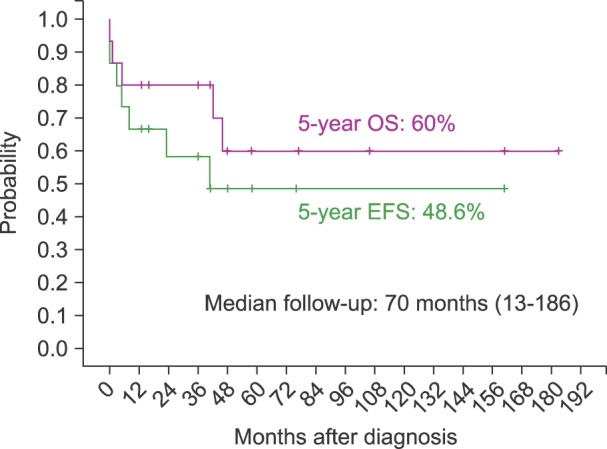
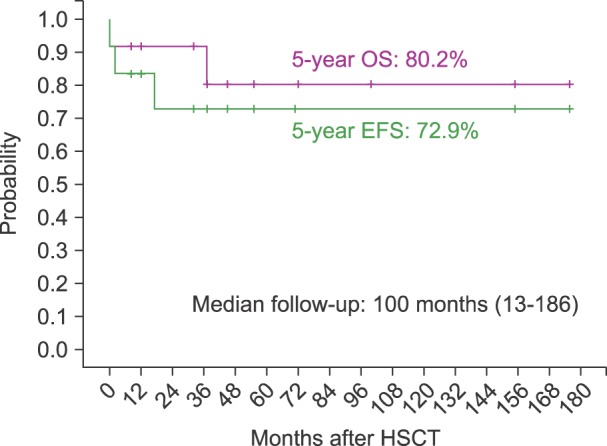
 XML Download
XML Download